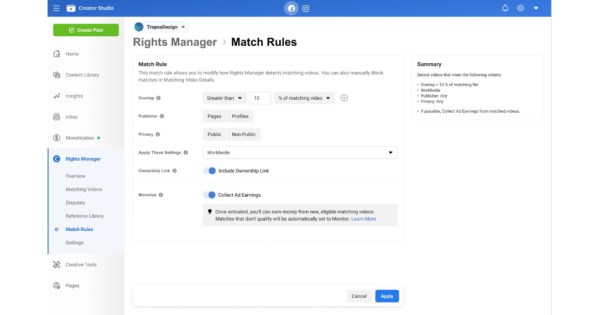Understanding market forces and how they influence currency values is crucial for anyone venturing into forex trading. The economic calendar is an often underappreciated yet vital tool in every trader’s toolkit. It is a roadmap detailing critical economic events, indicators, and data releases that can profoundly impact currency markets.
This article will discuss how economic calendars influence forex trading, emphasizing vital financial indicators such as inflation reports, jobs reports, and central bank announcements.
What is an Economic Calendar?
An economic calendar is a schedule of economic events and reports expected to impact forex trading. These events include data releases from government agencies, central banks, and various economic organizations. Traders use these calendars to anticipate market movements based on upcoming economic data that can influence currency supply and demand.
Economic calendars highlight vital indicators that provide previous data, consensus forecasts, and actual results, allowing traders to analyze them and make informed decisions. Your broker will likely have an economic calendar that will provide insight into the critical economic and financial releases that will come during the coming weeks and months.
The Importance of Economic Calendars in Forex Trading
The forex market is influenced by various factors, including economic indicators that reflect the health of a nation’s economy.
By monitoring an economic calendar, traders can:
Key Economic Indicators to Watch
Among the numerous entries in an economic calendar, several critical reports can potentially create significant market impacts. Here, we highlight three major categories that every beginner trader should closely observe: inflation reports, jobs reports, and central bank announcements.
Inflation Reports
Understanding inflation and rising services is eroding purchasing power. Central banks monitor inflation closely, as it can dictate monetary policy.
Inflation is the rate at which prices accelerate. The Consumer Price Index (CPI) is the most commonly referenced inflation report. It reflects changes in price levels encountered by consumers and serves as a vital economic indicator for most countries.
A rising CPI indicates increasing inflation. If inflation is higher than expected, it often leads to central banks tightening monetary policy (raising interest rates), causing a strengthening of the respective currency. Conversely, lower-than-expected inflation can decrease interest rate expectations, leading to currency depreciation.
What Beginners Should Watch For :
Pay attention to market expectations. Expect sharp currency movements if actual CPI data significantly deviates from consensus forecasts.
Analyze both the CPI and Core CPI (which excludes volatile food and energy prices) for a clearer picture of underlying inflation trends.
Jobs Reports
Employment statistics are critical for assessing economic performance. Labor market health is a vital indicator, and significant reports include non-farm payrolls (NFP), jobless claims, and unemployment rates.
Released by the U.S. Bureau of Labor Statistics, the NFP provides insight into the number of jobs added or lost in the economy (excluding the agricultural sector).
A higher NFP number typically signals a robust economy, leading to expectations of tighter monetary policy, strengthening the U.S. dollar. Low job creation or high unemployment can suggest economic weakness, leading to lower currency valuations.
What Beginners Should Watch For :
Look at the previous job reports. If the current report shows a significant change in earlier figures, it could lead to market volatility.
After the release of job data, observe how the market initially reacts. Expansive price movements may signal evolving sentiment regarding the economy.
Central Bank Announcements
Banks, such as the Federal Reserve (U.S.), European Central Bank (ECB), and Bank of England (BoE), set monetary policy, including interest rates and quantitative easing programs. Their announcements can greatly influence currency valuation.
These are arguably the most influential aspects of monetary policy, as they directly affect borrowing costs, inflation, and currency values.
If a central bank raises interest rates, it typically strengthens the currency due to higher investor returns. Conversely, rate cuts can weaken the currency. Central banks use interest rates to control inflation and stabilize the economy. Traders closely watch decisions regarding rate changes. If a central bank signals a tightening of monetary policy, it can lead to increased currency strength.
Interest rates are a pivotal component of the forex market, impacting currency values directly and indirectly through speculations, monetary policies, economic conditions, and global market perceptions. Understanding how interest rates function within the broader economic environment is essential for anyone involved in forex trading, whether they are retail investors or institutional traders. Keeping an eye on central bank announcements, economic data releases, and geopolitical events is also crucial for making informed trading decisions in the dynamic forex landscape.
Interest rate differentials are vital in determining currency valuations and shaping the forex forward curve. They reflect the economic outlook and risk associated with different currencies, guiding trader behavior and influencing capital flows. Understanding the interplay between interest rates and currency values equips investors with the insights needed to navigate the complexities of the forex market effectively. By analyzing the forward curve in the context of interest rate differentials, traders can make informed decisions for hedging and speculative purposes.
What Beginners Should Watch For :
Central banks often issue statements and forward guidance along with interest rate decisions. These provide crucial insights into their economic outlook and future policy intentions.
Be aware of any announcements regarding quantitative easing (QE). Central banks may use QE to inject liquidity into the economy, which can lead to currency depreciation if excessive.
After interest rate announcements, central banks often hold press conferences that can provide additional context about future decision-making. Watch for comments on inflation, economic growth, and market conditions.
Other Data to Watch
Additionally, traders should monitor economic growth (GDP), retail sales, and consumer sentiment.
GDP
GDP is the total monetary value of all final goods and services produced within a country’s borders over a specific period, typically a year or a quarter. It serves as a comprehensive measure of a nation’s overall economic activity and health.
Retail Sales
Retail sales represent the total receipts of retail stores and are a crucial indicator of consumer spending within an economy. This data reflects the value of sales made by retailers and is often reported monthly.
Consumer Sentiment
Consumer sentiment refers to the overall attitude of consumers regarding the state of the economy and their personal financial situation. It is typically measured through surveys that gauge respondents’ feelings about current and future economic conditions, including employment prospects, income growth, and general economic well-being.
Trading Strategies Using the Economic Calendar
Understanding the key economic indicators and their potential market impacts is only part of the equation. Developing effective trading strategies that leverage the insights gained from the economic calendar is crucial for success.
Traders should be cautious before significant economic releases (like NFP or inflation reports). Using orders or waiting for post-release price action can help mitigate risks associated with sudden spikes.
Utilize the economic calendar not just to track releases but also to analyze historical data. This practice helps traders understand how currency pairs reacted to similar economic events in the past.
Pay attention to market sentiment before and after important economic releases. Sentiment indicators (such as the Commitment of Traders report) can provide insight into whether traders are bullish or bearish on specific currency pairs, aiding decision-making.
Many traders execute trades based on the timing of specific economic data releases. For example, in anticipation of volatility around an NFP release, a trader might enter positions beforehand or use options for hedging.
Economic events can lead to significant price movements. Combining economic data analysis with technical analysis (like trend lines, support, and resistance levels) can enhance decision-making and improve the timing of entry and exit points.
Conclusion
An economic calendar is an essential tool for forex traders, especially beginners looking to navigate the complicated landscape of currency markets. Key indicators—such as inflation reports, jobs reports, and central bank announcements—hold the potential to move markets significantly, and understanding their implications is crucial for making informed trading decisions.
By actively monitoring economic releases and developing strategies that account for expected market reactions, traders can benefit from the insights provided by the economic calendar. This increased vigilance and preparation will ultimately enhance the trader’s ability to thrive in the volatile world of forex trading. Staying informed fosters better trading decisions and builds a foundation for long-term success in this fast-paced market.












